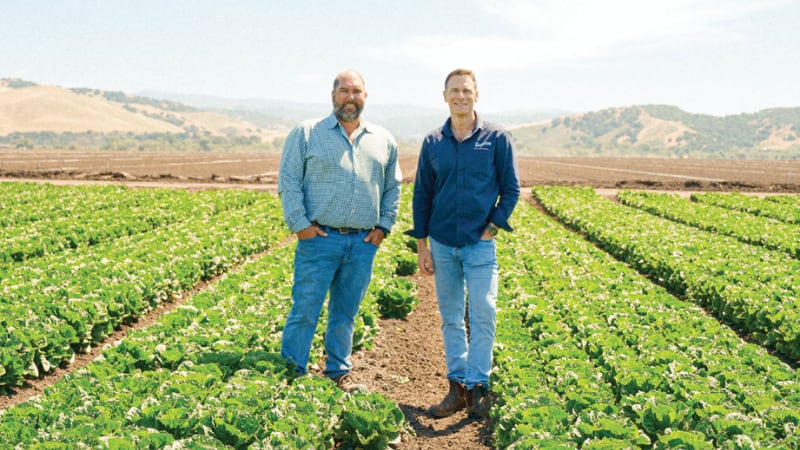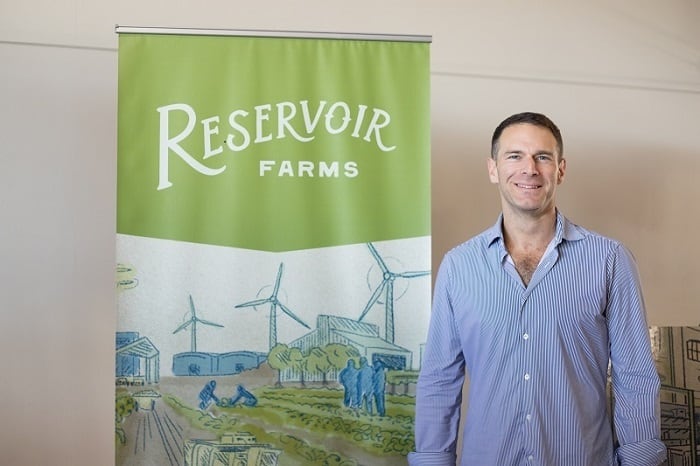A 40-acre farm located at the corner of Highway 68 and Hitchcock Road in sunny California is the home of Reservoir Farms ─ a “purpose-built” agtech robotic innovation hub ─ providing fertile ground for start-ups to test their vision for the future of agriculture, Danny Bernstein, CEO and managing partner of The Reservoir, said.
Venture capital (VC) firm and agtech incubator The Reservoir leased the property from food producer Tanimura & Antle, with 90-year roots in the Salinas, Calif. region. Then, The Reservoir sub-leases the space to start-ups through a multi-tier membership structure, with different levels based on where they are in their funding cycle, (i.e., pre-seed, seed or Series A), Bernstein explained.
The Salinas facility would be ideal for producing artichokes, arugula, broccoli, brussels sprouts, carrots, cauliflower, celery, kale, lettuce, onions, spinach, strawberries, squash, zucchini and more.
The Reservoir is seeking start-ups in the area of robotic harvesters, rugged mobility, machine vision for crop maturity and quality, lightweight end effectors for delicate crops, modular field robotics components, edge AI, and precision soil and bed analytics.
Setting up shop in Salinas made sense because the region is home to “some of the most famous and well-regarded produce grower-shippers in the world within a short driving distance,” including Taylor Farms, Driscolls, Fresh Express, Duda Farm Fresh Foods, Church Brothers and others, Bernstein noted.
“If you look at the assets in Salinas, it has all the potential to be really the leafy greens, veg, and strawberries ... innovation capital, and we are unapologetic about that. And we want to compete with other capitals. We call [Reservoir Farms] the Olympic village of ag tech,” he elaborated.
Reservoir Farms’ as-a-service model for space rental
Revealed last fall, Reservoir Farms will officially open this fall and offer multi-tier memberships at basic, intermediate and premium levels, costing $5,169.51, $7,754.27 and $11,631.40, respectively, according to data shared exclusively with AgTechNavigator.
Each membership tier provides access to a fabrication and machine shop, rest areas, an acre of farm and different-sized indoor and enclosed spaces based on membership level.
The Reservoir wanted to be as transparent as possible with pricing - so in addition to listing the price down to the cent – the firm offers an itemized list of what each specific amenity costs, Bernstein said.
Start-up response to Reservoir Farms outpaced expectations, as the organisation “originally expected to have three companies” but now is likely “to be at capacity,” when it opens for business. Last month, The Reservoir opened applications for the incubator programme.
Additionally, Reservoir Farms plans to open a facility in Merced, Calif., some 100 miles Northeast of the Salinas facility.
“Imagine you are a roboticist, and you want to build a company. We give you access to a farm on day one, a shop on day one and grower conversations on day one. People say, ‘You need 50 customer conversations to build a minimum viable product.’ We can facilitate that. And so, the amount of efficiency that we can give in that pre-seed/seed stage, we think is going to change the industry,” Bernstein elaborated.
‘Agtech capital markets are backwater’
Moving ahead, The Reservoir is also focusing on modernising agriculture capital markets, which are among the least liquid – the ability to easily buy and sell assets – in any industry, Bernstein pointed out.
Secondary market platform EquityZen scored the agriculture and farming sector as the least liquid, despite food and beverage having the highest rate of liquidity, per analysis from last December.
Agricultural liquidity issues stem from large investments in equipment and real estate, which cannot be sold quickly. However, bringing digitised private markets and crowdfunding platforms to agriculture can boost liquidity and increase the number of people who could invest, Bernstein explained.
“In the same way that we brought a lot of energy and partnerships into the incubator space, we want to bring the same into capital markets. And agtech capital markets are backwater. They really are among the least liquid, least digitised capital markets in all of technology,” Bernstein said.



